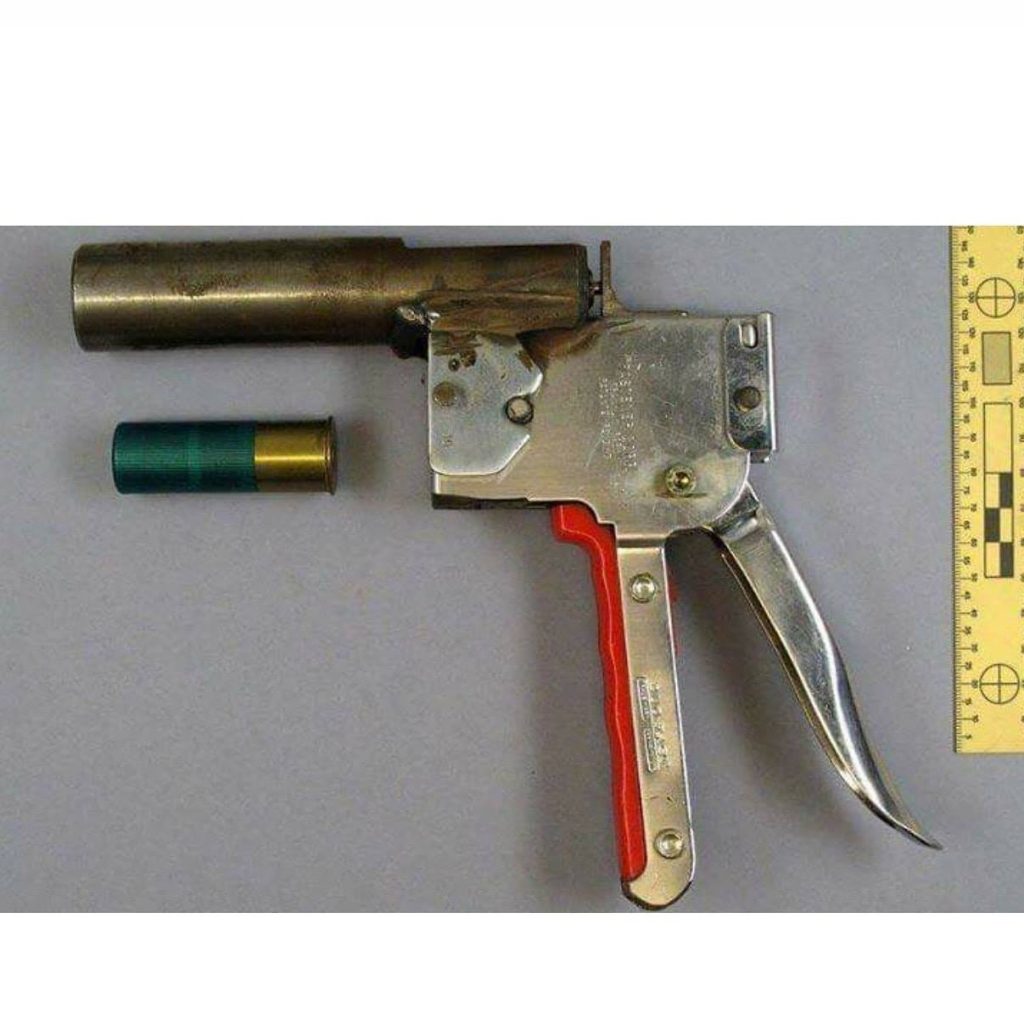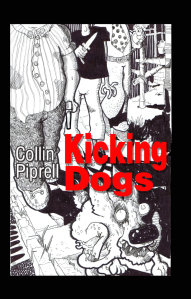
The previous episode concluded with the following:
Rambo was singing Carabao’s nice song “Welcome to Thailand” between his teeth into the mike — in the process, I guessed, erasing the interview with the high-ranking police officer I had managed to get only after long negotiation. Then there were three bangs on the door, and Somsak arrived with the drinks. I decided a little Mekhong was a good thing after all.
And just at that moment the other door opened …
Chapter 2
IT’S A SMALL WORLD
Selections from Arno Petty’s Intelligencer and Weekly Gleaner
- HIGH TIMES. The US embassy advises American nationals that if they discover their children are doing heroin, then the only real hope of saving them is to get them out of the country, and the sooner the better. Heroin is so readily available and so cheap, at least for the middle class, that the prospects of your kid giving it up are minimal. Or so goes the received wisdom.
- RECYCLING THE WEALTH. In your explorations of Bangkok, you sometimes come across men and women wading waist-deep in the city’s canals, straining the black mud with woven baskets. They are panning for amulets, coins, bits of things that people have thrown in over the years as gifts to the spirits. Later, you will find these small-business people with their treasures spread out on the sidewalks for sale to passers-by. Others, a more exclusive guild, paddle their sampans along the river and use long-handled baskets to scoop out everything from plastic bags to soft-drink cans, later selling them back to street vendors or else to scrap dealers. Whole communities of slum dwellers, meanwhile, eke out a bare subsistence by scavenging on municipal garbage dumps.
Everybody says this is a small world, and that is so. Standing there in the doorframe four-square and wound up tight, a spring-loaded cement truck on a hair trigger, who did I see but Wrong-Way Willie Wong, a.k.a. Wong Wei, man about Bangkok, originally from Hong Kong.
In Thailand you get your nak laeng, your toughs who make their way in life ignoring all the rules that normally keep polite Thai society smiling. This is their power. It’s a kind of terrorism: the predictability of conventional social discourse no longer holds. In Thailand everything is smiles and wai-ing — bringing your hands together in greeting up against the forehead as in prayer; it’s all excuse me and no, please, you are first. Jai yen yen — keep a cool heart, maintain your cool; showing your emotions, losing your temper is a sign of weakness. Self-containment, calm and control is strength and it is the Buddhist way. That’s right. Right up to the moment somebody cracks. Then you find no nicely graduated escalation of the situation, where all parties to the piss-off can see where things are going and take steps to defuse it before irreparable damage is done. No, here in Thailand everything is smiles one second and blind mayhem the next. That’s why the country has just about the highest murder rate in the world. There’s a high value placed on control, but there aren’t enough safety valves to take the pressure off. When a citizen blows, he blows right up.
And nak laeng capitalize on this. They ignore the polite conventions; they don’t play by the rules. They’re already outside the game, out there in that nasty, unpredictable jungle where anything goes. The conventional controls are already off, and the tough uses this perception to control the situation — you don’t step aside, and you’re dead. You return the stare one second too long, and you’re dead. Some nak laeng is drunk and he thinks you’re laughing at him, and you’re dead. This prospect disconcerts your average square. He’s got everything to lose, but this guy who wants to relieve him of only part of that — whether it’s his money or his self-respect — behaves like he’s got nothing to lose. So most people try to fix things in a way that makes any nak laeng in the vicinity happy. And this is how these types make their living.
But a man like Willie was in another class altogether. You only had to look at him to see this. He radiated authority. Tommy had it too; I saw that in action downstairs when he sent two nak laeng outside, and all it took was the Look. Guys like these were coming from somewhere that terrorized your Joe Naklaeng, never mind Charlie Citizen.
And here was the Willie whose name I couldn’t mention downstairs.
“Willie!” I said.
“You!” he answered me.
Having expressed our mutual surprise, Willie and I stood there for a minute fresh out of topics for conversation.
“You are the writer?” Willie asked me in tones of disbelief.
“You are the specialist I’ve come to talk to?” I asked in similar tones.
Tommy looked pleased, just as though he had engineered the whole thing himself. Rambo played back his rendition of “Welcome to Thailand,” and he looked pleased. In fact by now everyone was looking pleased, except for Somsak, who was merely looking eager to please. Tommy told him to get some drinks on the table, what was he standing around gaping for? I think that was what Tommy said; anyway Somsak poured the drinks.
Willie, it turned out, was indeed the notorious gunman who had agreed to tell all to the press, only the newspaper was to keep his name out of it, right?
He remembered our previous encounter well, and he wondered how I had managed to get lost that night, after we had had such a good time together, getting along so well we had even talked of forming a partnership. But truth to tell, we all wound up so plastered he wasn’t sure it was me who got lost or them. Anyway, he was glad I did not leave the country and it was good we could do business together again. I should have a drink, he said, and ask him anything I wanted to know. One thing he had these days, he told me, was lots of time on his hands.
Willie looked at the half-bottle of Mekhong Tommy had ordered. “Tommy, Tommy, Tommy,” he said. “This is our old friend the farang who is now a newspaper writer and who drinks and eats with us like we are brothers, and you order one ben of whiskey for what?”
Willie looked over at Somsak and Somsak jumped up with an anxious expression sliding around his face.
“You. You go down and get another bottle of Mekhong. A big one. And also bring some naem sod. That’s right. Our farang friend can eat Thai food.”
This time, to tell the truth, I would have liked to say no to the naem sod, but my instincts told me etiquette forbade. Besides, what were a few parasites to stand between old friends reunited at some providential whim?
Somsak was fixing drinks. I got a glass of Mekhong soda that was mostly Mekhong, I judged by the color. And I saw no reason to change my mind when I tasted it. I told my friends I was working, this time, and I didn’t want to drink too much. Especially since I had to take notes; I couldn’t use my recorder.
“Drink up, farang,” said Willie. “We are old friends, and I know you can drink, drink all night, no problem. Only maybe you disappear, sometimes.”
Somsak served drinks all around; and even Rambo took the matchstick out so he could get at the whiskey. Somsak poured himself a shot as well, I noticed; but Willie said something to him, and Somsak went over to dump it into Tommy’s glass. Tommy was half finished the first drink already.
I was wondering why Somsak didn’t get a drink, but what I asked was this: “What’s with all the locked doors, and why can’t I say ‘Willie’ to Tommy downstairs without getting the Look?”
Willie rolled his shirt up over his belly and got himself comfortably arranged on his chair, taking a good two-handed grip on his drink.
“It’s a long story, na?” said Willie. “Last time we see you we are not in real good shape, our only hardware on the bottom of the river and not enough money to buy beer at breakfast next day; the hangover is enough to kill us. Never mind our quiet partner and main hope for the future disappears into the night. We don’t even get a ‘See you later.’”
Willie looked at me accusingly.
Tommy wasn’t listening; he couldn’t follow the English. He was playing with a switchblade knife, dropping it again and again between his knees, trying to stick it into the floor. Somsak was over on the mattress watching a Chinese kung fu movie on the video. Rambo was still up against the wall, Mekhong soda in hand, matchstick in place, but you couldn’t tell if he was watching the video or what he was doing, with those shades on. I knew he wasn’t asleep, because the matchstick kept traveling back and forth, from side to side between his teeth, except when he took it out to make way for the Mekhong.
“I don’t know what happened,” I told Willie. “One minute I had to find a toilet, and the next minute I was across town somewhere and you and Tommy were nowhere to be found. Maybe I drank too much. Or could be I was tired from all the day’s excitement. You know how it is.”
Willie said he knew. He could see I was a straight shooter, basically, only I lost track of myself from time to time, and he could understand that, after all.
“But now, I hear, the newspaper wants to find out about gunmen,” Willie said. “So, no problem. Hey. Ask away.”
Willie wanted to let me know we should get this interview on the road. He wasn’t sure how long he could hang around, in fact. These days he liked to keep moving. So I got right down to business, and in no time I was learning all manner of interesting things.
I learned, for example, that big 11mm automatic pistols such as the one Tommy had on the table in front of him tended to be favored, hereabouts, because they had a nice punch — they often finished off your assignment even when you missed the vital organs. One other advantage, of course, was that gazing into that big, black muzzle tended to keep the mark kind of spellbound. This gave you a chance to make peace with his spirit before you pulled the trigger — from what Willie told me, I got the idea it didn’t do to have disgruntled spirits roaming around constantly annoying you, if you were a professional hitman.
I asked about the fee schedule gunmen such as themselves applied when negotiating a contract.
“You mean, how much to bump a man?”
“Yeah.”
“That can be anywhere from 10,000 baht, these days, all the way up to about 200,000. Where you get somebody with lots of protection, plenty of influence — that’s where it costs you. Actually, you can get as much as a half million, but that’s generally for some square, somebody polite, na?
“Tommy and me, of course, we mostly take on the fatcats, you know what I mean?” Willie was waxing expansive. “The seua nawn kin. Driving their Benzes, jiving their minor wives …”
“I see.” Here was an angle for my story. “It’s like you resent these bigshots with the money and the power, right? Strike a blow for the little man, social justice and all that, eh?”
Willie looked at me pityingly and asked me what I was talking about. He turned to Tommy, and he told Tommy I was calling them a couple of Commies or something. “Hey. Those bigshots are smart,” Willie said to me. “They got it made, and they got nothing but my respect. You don’t think I take these Benzes and these sweet mia noi with their fine clothes and soft voices? You crazy? No, you have to respect these guys.
“But the thing is, that’s where the money is, bumping fatcats. What’s somebody gonna pay me for bumping, say for instance, a reporter?”
Just about nothing, I hastened to agree.
“Ten thousand baht. Tops,” he told me.
I was worth five hundred bucks US. Less than that. So why were my life insurance premiums so high? Not that I paid any.
I passed my glass over for a refill, forgetting for a minute I wanted to stay sober.
“Yeah, we bump enough of these fatcats, only we can hang onto the money for a change, and you find us behind the wheels of those fancy big cars, eating in those fancy big restaurants …”
He repeated all of this in Thai for Tommy, and I saw Rambo was listening in with no little interest, as well.
“How else are guys like us gonna make it? Na? I’m gonna work on the docks, I’m gonna get rich? And Tommy, here, with his bum feet he can’t work on the docks, he’s gonna sell meatballs on the street? Sure, and die poor and die young. You can have it. Hey. No, you gotta take your chance where you find it. It’s just business. After all.”
Willie got a real serious look on his face every time he said the word “business.” Tommy also looked pretty solemn, and he said “Chai, chai. Yes, yes. Bisnet.”
“But, like I say, that’s the kind of money it takes to bump somebody. Just to shake him … that depends.
“The way it usually goes, Tommy and I get our man alone some place, and I show him some hardware while Tommy shows him the Look. Chances are that’s all it takes. But some jobs are different, na? Like not too long ago, a client wants us to throw a little scare into one of his business competitors. Loosen the guy up a bit, you know? Get him to listen to reason and everything.
“This guy, his name is Fast Vanich.”
“He’s not a man you can get alone some place for a talk, and you don’t get close enough to show him the Look or any hardware either. Unless this hardware is somewhat bigger than an automatic pistol, let us say for example something about the size of a battle tank. One problem is, he has a small army of bodyguards.
“Tommy and I get to thinking, seeing we can’t discuss things directly with him, maybe it’s better we kick the dog instead. This approach has more class anyway, when we think about it. You know what I mean?”
In Thai society, my girlfriend Mu had already told me, more than once, it is not polite to express your annoyance directly. It is better you smile at the object of your annoyance, while at the same time you put the boots to or otherwise batter some other item in the vicinity, such as a passing dog. If you do this right, the real object of your displeasure can have the fact of this displeasure brought home to him quite forcefully, and meanwhile he cannot fault your sense of propriety.
But Willie wanted me to know that he was speaking only figuratively, when he spoke of kicking the dog. They had by no means been about to kick Fast Vanich’s dogs, which were several in number and bad-tempered Dobermans besides, the type who do not take kindly to getting booted. Not to mention they would have had to climb over a three-meter wall topped with broken glass and electrified barbed wire even to get close enough to these mutts to kick them in the first place.
Tommy thought they could throw poisoned meatballs over the wall, this being in his opinion a sounder procedure than trying to kick a bunch of Dobermans. “But I like dogs, generally speaking,” said Willie, “and it is not a dog’s fault if it’s born a Doberman and not real friendly, and I just as soon not have all these dead dogs on my mind.”
But then Willie and Tommy got a good idea. Fast Vanich had this godown along beside the river, and they checked it out and found it was full to busting with all kinds of fine stuff. It seemed Fast Vanich was into import-export. He had everything from color TVs to antique plastic dancing elephants on hand, and rumors had it that once in a while some of these objets contained certain substances that could realize a very high profit margin, as long as the authorities didn’t get wind of this information first. So Willie and Tommy figured it this way — they only had to remind Fast Vanich of the impermanence of all worldly things, and maybe a small explosion in this warehouse was just what it would take to do this. A few 24-inch Sonys up in smoke, and Fast Vanich would figure it was time to cut his losses and talk turkey. So they did this at night, when nobody would get hurt, only a night watchman or two; and it was nice and polite — not too direct or anything, I had to understand. Fast Vanich would see he could talk to their client and nobody had to lose too much face or anything. What were a few television sets to a bigshot like him? After all.
As an example of kicking the dog, Willie told me, this godown caper had the dog kicked all the way into next week. “You have to think Tommy is probably out of touch when it comes to demolition jobs, and we overdo the explosives a bit. And besides this the piles the joint is built on are most likely rotten. What with one thing and another, anyway, the whole warehouse goes into the river. It’s what you call overkill.”
This miscalculation was good news for many of the small businessmen downriver from the job, mind you. Willie told me the favorite collector’s item had been the plastic dancing elephant, which often turned out to be stuffed with bags of No.4 heroin. The cushions with the Temple of Dawn embroidered on them had also been popular, since many of these objets were filled with an unusual grade of ganja, sweet maryjane, and the cushion covers made good gifts.
“Overall, it is good promotion for our services,” Willie said, “since people in general are quite impressed with the spirit they hear we bring to our work.”
And my friends did play hardball, I could see that. They were also drinking enough to make them impressive individuals even if they didn’t make a habit of blowing things up when they weren’t blowing people away. I was getting the idea they were keeping up with me, the bottomless farang. You couldn’t let some pissant foreign pencil-pusher drink you under the table.
My next question was interrupted by a sudden “Whish, whish, whish, thud. Whish, whish, thud; thud, whish.” I had heard these sounds earlier, on the kung fu video, except this time it wasn’t the video, it was Somsak who was shooting boots and fists in Rambo’s general direction. Somsak was making whishing noises and pounding his chest to simulate the sound of blows.
While everybody was watching this performance, I whipped my Mekhong into the ice-bucket again.
But Tommy was annoyed with Somsak’s antics, it seemed, because next thing he decided to level his pistol at Somsak’s head. I was thinking this couldn’t be happening. He wasn’t going to shoot old Somsak in the head, was he? Then I saw if there was anything worse than getting the Look, it was getting the Look over the gunsights of an 11mm automatic pistol. But Somsak didn’t notice. What he did notice was that Rambo had left off being unconcerned by all this whishing about. In fact Rambo put down his glass, stood up, and kicked Somsak in the stomach. Somsak’s eyes bugged out and he staggered back to fold up on the mattress, wheezing and gasping and looking surprised.
Rambo sat down again to watch the video or whatever it was he did behind those glasses. But first he turned those Blues Brothers shades on me and stared till I had to think something was up. What the hell was this? I asked myself. Then I asked Willie: “What the hell is this?”
“Never mind the boy. He doesn’t like farang.”
“Farang!” said Rambo, the first thing I had ever heard him speak, and he used the “Westerner-who-bears-much-resemblance-to-a-dog-turd” version of farang.
“His father was an American GI,” Willie told me, “on a little R&R from Vietnam, na? And he finds this nice girl on New Petchburi Road. He bangs her up and goes away and the boy never gets to see his own poppa. It pisses him off, he says.”
“Okay, I guess,” I said. “But why did he kick Somsak in the stomach? Somsak is no farang, even if he does look something like Jean-Paul Sartre.”
“He kicks Somsak, but he means you.”
“Oh.”
I was still surprised Somsak let everybody treat him like a dog this way. He was bigger than Rambo, for one thing, and he looked stronger. “Doesn’t Somsak have a gun?” I asked Willie.
“Nobody in their right mind lets that guy have a gun. Hey. He’s a good boy, but he is watching the video and doesn’t notice when they hand out the brains in this life. He’s not all there in the head, na? Especially when he’s drinking. We don’t let him drink.”
Right at this moment there was a knock at the door. Wham, wham. Not wham, wham, wham, like when Tommy and I arrived, but just wham, wham. Not much of a difference, I was thinking, but it was truly remarkable the reaction it got from my companions.
Rambo was suddenly crouched down in the corner with the shotgun pointed along the wall towards the door. Tommy was on the other side of the door with his pistol held high. Willie, in the meantime, was making his way on tip-toe out through the other door, the way he had come in earlier. Then I saw what Somsak was good for. Tommy waggled his gun at him and he was the one who got to answer the door, which he proceeded to do quite cheerfully; you could see he liked to help. Willie was right; the boy was no Einstein.
Willie was waving at me frantically, so I got up and followed him through the door. I was quite pleased to get invited out of the room just then. I wasn’t sure exactly what was what, but it was clear something was up, and that something was no surprise party for somebody’s favorite cousin.
I was standing in what I thought was a closet, only Willie reached up and pulled something, and the back wall swung away to reveal a flight of steps. I kept waiting for all hell to break loose, but there was merely the sound of muffled voices and then some muffled thuds. Willie was also puzzled, and he fiddled nervously with the M-16 assault rifle he had found somewhere since we came in here.
After a minute we heard a tap-tap-tap on the door, and Willie hugged up against the wall beside the door and tapped back with the barrel of the M-16, three times. Then we heard tap-tap-tap-tap-tap, and Willie said it was okay; it was Tommy. Open the door. I was no Somsak: I opened the door, but with no enthusiasm whatever.
It was Tommy, however, and he reported there was no problem. It was only a boy from downstairs with the food, and he didn’t know the code knock.
What about the guard on the landing? Willie wanted to know. He looked not very happy.
He had been asleep when the boy came up, Tommy said. The boy was afraid to wake him because this dude was a hard man and generally bad-tempered, as well.
I could see Willie was not very happy, indeed. He said, “Where is this guard, I want to talk to him.” He said this in a way that made you glad you were not the guard in question.
According to Tommy, however, the hard man was indisposed right then; he was downstairs getting his face taped up. I saw Tommy was back to wiping and polishing his pistol; the paper he was using had red stains on it. Maybe blood, I guessed.
“I swear,” said Willie. “The kind of people you have to work with. Na? It isn’t easy to get good help, not these days. I am glad when this all blows over, and things get back to normal. Eh, Tommy?”
Tommy looked noncommittal. He stripped his automatic down and started to clean it part by part.
·
If you’re enjoying this story,
please spread the word.
Next week we learn how Tommy and Willie get this reputation for being “not standard.” Jack scores plenty of notes for his newspaper story, learning more about Tommy and Willie’s various business enterprises and business conflicts, not to mention some of the ins and outs of being successful hard men in such troubled times.
·
Take your choice:



